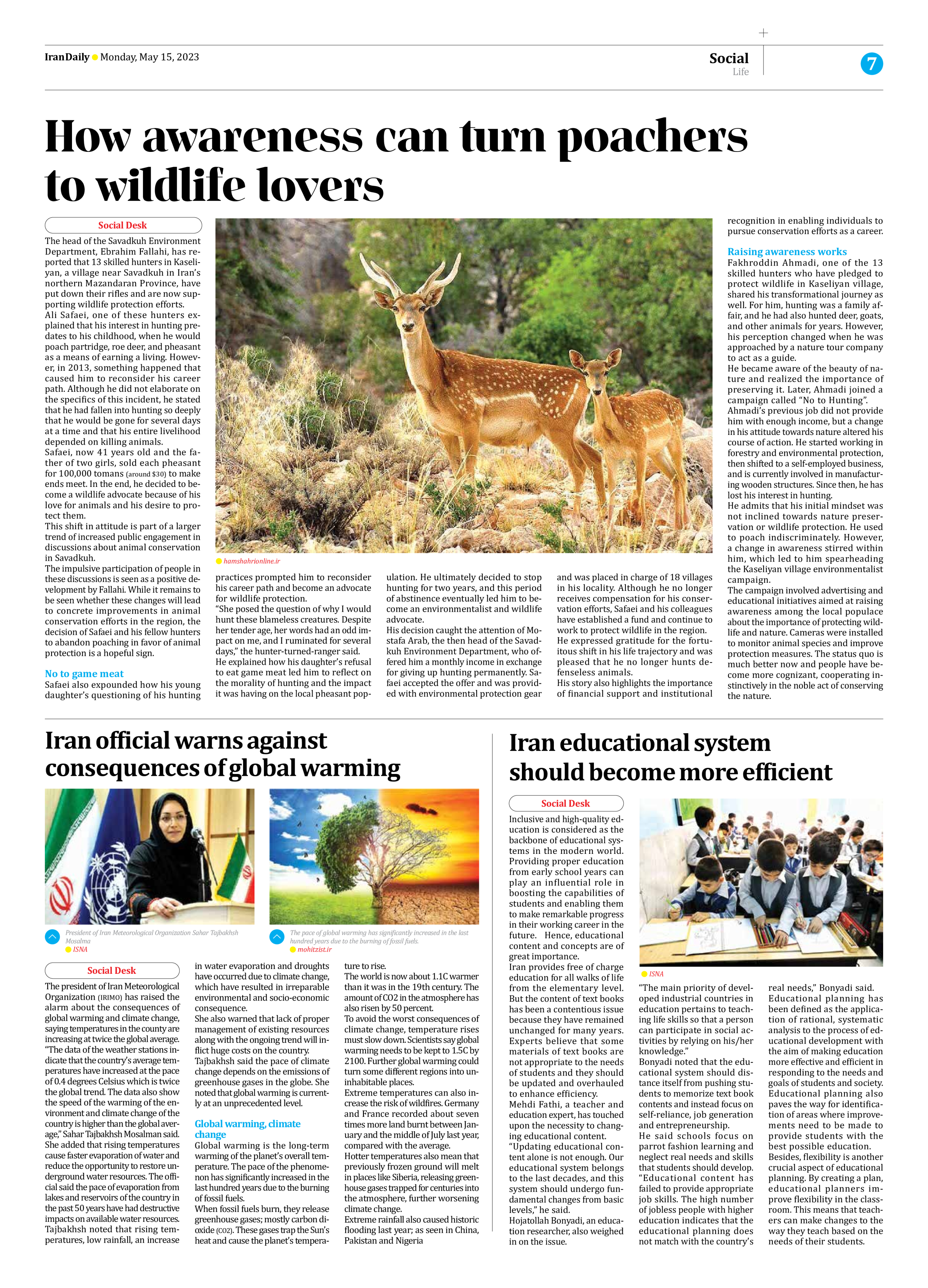
How awareness can turn poachers to wildlife lovers
The head of the Savadkuh Environment Department, Ebrahim Fallahi, has reported that 13 skilled hunters in Kaseliyan, a village near Savadkuh in Iran’s northern Mazandaran Province, have put down their rifles and are now supporting wildlife protection efforts.
Ali Safaei, one of these hunters explained that his interest in hunting predates to his childhood, when he would poach partridge, roe deer, and pheasant as a means of earning a living. However, in 2013, something happened that caused him to reconsider his career path. Although he did not elaborate on the specifics of this incident, he stated that he had fallen into hunting so deeply that he would be gone for several days at a time and that his entire livelihood depended on killing animals.
Safaei, now 41 years old and the father of two girls, sold each pheasant for 100,000 tomans (around $30) to make ends meet. In the end, he decided to become a wildlife advocate because of his love for animals and his desire to protect them.
This shift in attitude is part of a larger trend of increased public engagement in discussions about animal conservation in Savadkuh.
The impulsive participation of people in these discussions is seen as a positive development by Fallahi. While it remains to be seen whether these changes will lead to concrete improvements in animal conservation efforts in the region, the decision of Safaei and his fellow hunters to abandon poaching in favor of animal protection is a hopeful sign.
No to game meat
Safaei also expounded how his young daughter’s questioning of his hunting practices prompted him to reconsider his career path and become an advocate for wildlife protection.
“She posed the question of why I would hunt these blameless creatures. Despite her tender age, her words had an odd impact on me, and I ruminated for several days,” the hunter-turned-ranger said.
He explained how his daughter’s refusal to eat game meat led him to reflect on the morality of hunting and the impact it was having on the local pheasant population. He ultimately decided to stop hunting for two years, and this period of abstinence eventually led him to become an environmentalist and wildlife advocate.
His decision caught the attention of Mostafa Arab, the then head of the Savadkuh Environment Department, who offered him a monthly income in exchange for giving up hunting permanently. Safaei accepted the offer and was provided with environmental protection gear and was placed in charge of 18 villages in his locality. Although he no longer receives compensation for his conservation efforts, Safaei and his colleagues have established a fund and continue to work to protect wildlife in the region.
He expressed gratitude for the fortuitous shift in his life trajectory and was pleased that he no longer hunts defenseless animals.
His story also highlights the importance of financial support and institutional recognition in enabling individuals to pursue conservation efforts as a career.
Raising awareness works
Fakhroddin Ahmadi, one of the 13 skilled hunters who have pledged to protect wildlife in Kaseliyan village, shared his transformational journey as well. For him, hunting was a family affair, and he had also hunted deer, goats, and other animals for years. However, his perception changed when he was approached by a nature tour company to act as a guide.
He became aware of the beauty of nature and realized the importance of preserving it. Later, Ahmadi joined a campaign called “No to Hunting”.
Ahmadi’s previous job did not provide him with enough income, but a change in his attitude towards nature altered his course of action. He started working in forestry and environmental protection, then shifted to a self-employed business, and is currently involved in manufacturing wooden structures. Since then, he has lost his interest in hunting.
He admits that his initial mindset was not inclined towards nature preservation or wildlife protection. He used to poach indiscriminately. However, a change in awareness stirred within him, which led to him spearheading the Kaseliyan village environmentalist campaign.
The campaign involved advertising and educational initiatives aimed at raising awareness among the local populace about the importance of protecting wildlife and nature. Cameras were installed to monitor animal species and improve protection measures. The status quo is much better now and people have become more cognizant, cooperating instinctively in the noble act of conserving the nature.







